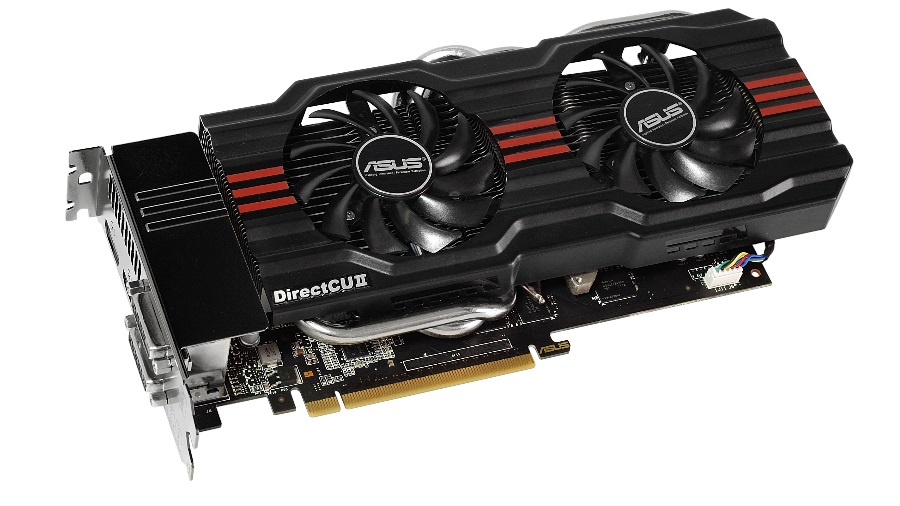Why you can trust TechRadar
It's definitely a case of a cut too far for the GK104 GPU Nvidia is using to pad out its Kepler line up. The weaker GPU and memory bus combo means even this Asus GTX 660 Ti DCU II Top card can't compete with similarly-priced GTX 670 or the cheaper AMD HD 7950.
Even the extreme overclock Asus has managed on the GTX 660 Ti GPU, going from 915MHz up to 1,059MHz on the base clock alone, can't help push the performance up to GTX 670 speeds, or even AMD HD 7950 pace.
The EVGA GTX 660 Ti SC is also slightly overclocked, but is significantly cheaper than the Asus card. That puts it in the same price bracket as the HD 7950, but that only goes to show how solid the performance of the AMD chip is, even eight months or so since it first launched.
DirectX 11 Tesselation performance
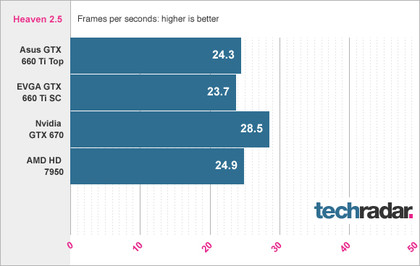
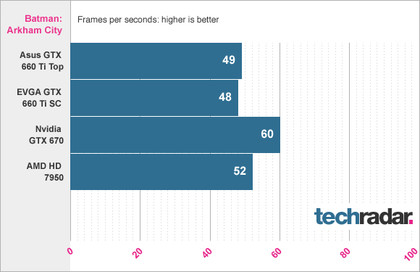
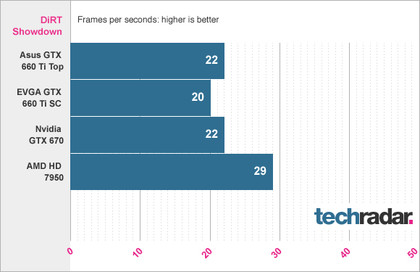
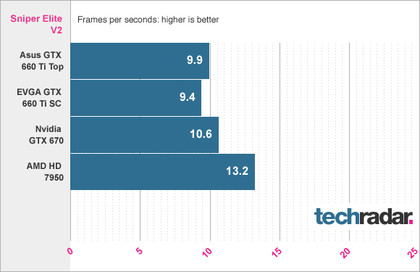
DirectX 11 1080p performance
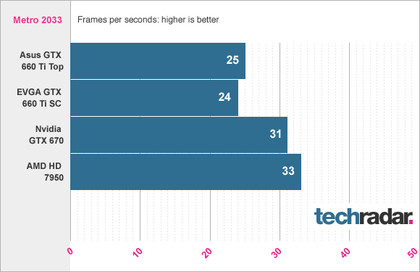
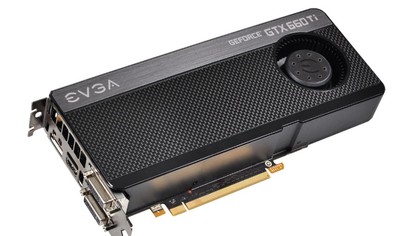
Generally it's a lot more fun to write a negative review about a product than a positive one. With a positive review everything's been done right so there's nothing for the writer to rail against. With a negative review on the other hand you can have fun laughing at the stupid design decisions the company in question has made.
Sometimes though a product can be so disappointing there's not an ounce of fun to be had from kicking it. We'd expected the GTX 660 Ti to be a serious contender for our favourite GPU of all time. After all, combining the goodness of the Kepler architecture, like the GPU boost, impressive power juggling, pretties like TXAA and Adaptive Vsync and a mainstream price-tag, how could it fail?
Well, talk to Nvidia and you'll find out. It can certainly fail if you don't bother designing a GPU aimed at the mainstream and instead just hack up the existing chip you've been using for your top-tier gaming cards since March.
The ageing GK104 is a fine GPU when it's being fed with a decent memory bus and hasn't been pared to the bone. Hacked up, as it is in the GTX 660 Ti, it's not much good to anyone unless it's significantly cheaper than we're seeing at launch.
